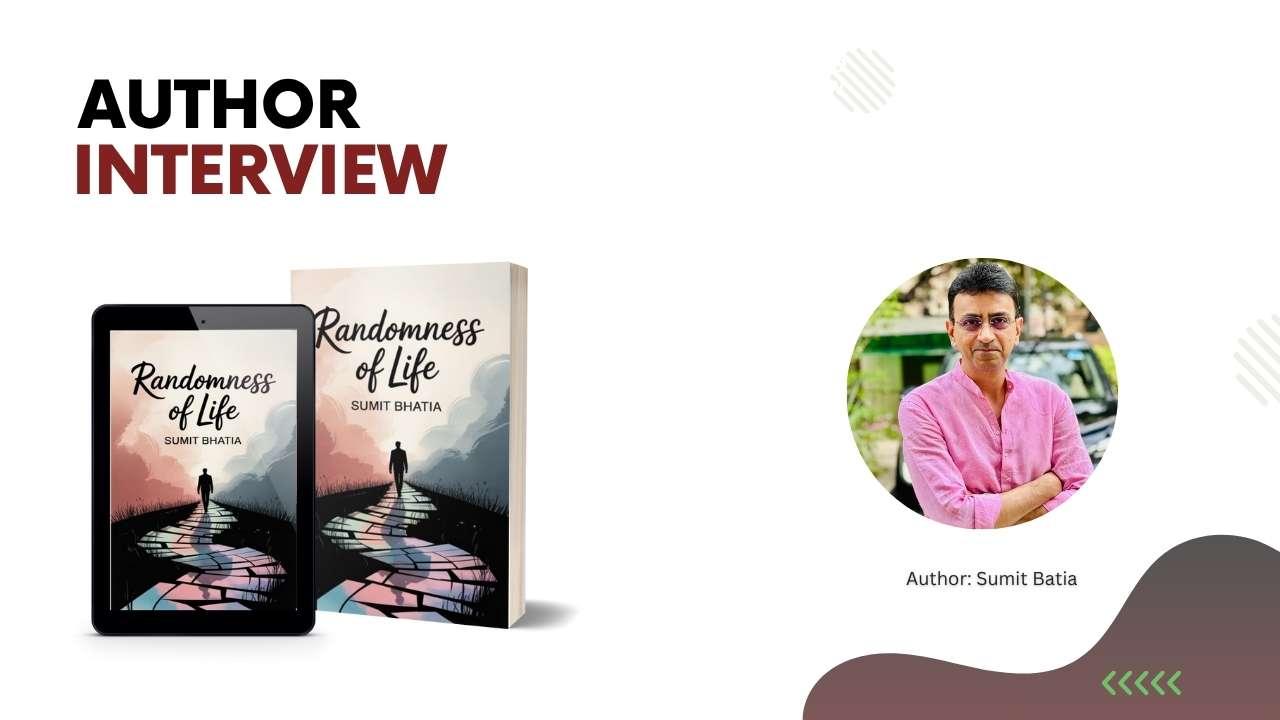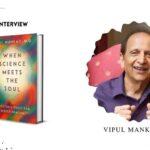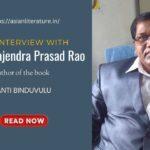
Behind the verses: Sumit Bhatia talks Randomness of Life.
Title: Randomness of Life
Author: Sumit Bhatia
ISBN: 9789363550506
Publisher: Evincepub Publishing
About the author: Sumit Bhatia is a storyteller of the everyday—capturing fleeting moments and emotions through poetry. With a love for writing and an ear for the unsaid, he weaves deeply relatable reflections on love, memory, identity, and presence. Randomness of Life is his heartfelt attempt to honor the soft, often overlooked spaces where real life happens. When not writing, Sumit can be found observing the world through the lens of wonder, quiet thought, and a deep love for meaningful connection.
Question – What inspired you to write Randomness of Life?
Answer – This book was born from observing the beauty and chaos of everyday moments. Life rarely follows a script. Joy, grief, love, loss – they arrive uninvited, often without warning. Randomness of Life is my way of making sense of that unpredictability, of holding a mirror to the moments that shape us, and hopefully it resonates in some way with everyone.
Question – How did you first get interested in writing poetry?
Answer – I have always been drawn to the power of words, especially poetry – how a few lines can carry so much depth. I started writing from a young age – mostly around and for love. Then poetry became a way to process emotions that didn’t have another outlet.
Question – Many of your poems feel very personal. Are they based on your real-life experiences?
Answer – Many are drawn from my life – sometimes directly, sometimes inspired by a feeling, a conversation, or a memory that lingered. Some are also drawn from observing others.
Question – Your poems talk a lot about love, loss, and memories. Why do these themes matter to you?
Answer – Because they shape us. Love and loss are two sides of the same coin – they leave permanent imprints forward. These themes matter to me because they’re universal, yet deeply personal. They remind us that we’re not alone in what we feel.
Question – Did you have a writing routine while working on this book?
Answer – Not a fixed one. Some poems came to me late at night, others during the long drive to work. Some just started with a few words that took months to convert into a completed poem. I learned to capture the thought when it arrived – on my phone, in a notebook, wherever I could. The routine was less about timing, and more about presence.
Question – Which poem in the book is your personal favourite, and why?
Answer – That’s a tough one. If I must choose, I would say I like the pair of ‘mirror’ poems I have written –The Mirror Asks and When the Mirror Asked Again. The first one is about early growing up, teen years. The second one is about how we look at our own reflection as we have matured.
Question – How do you decide what moment or feeling to write about?
Answer – It usually starts with something small that triggers a thought or emotion. If it lingers, if it keeps coming back, I know it’s worth exploring. Some of that gets converted into a poem, some into other forms.
Question – Was it difficult to write such emotional and honest pieces?
Answer – At times, yes. Some poems brought up things I had forgotten, while for others I had to stir up emotions hidden deep. But writing them also brought clarity and healing. Vulnerability is hard, but I believe that’s where the most meaningful writing comes from.
Question – What do you want readers to feel after reading your book?
Answer – Seen. Connected. I want them to feel less alone in their own randomness. I want them to pause and reflect. The book does not tend to provide answers, it just makes the questions less scary.
Question – Do you think poetry is still relevant in today’s fast world?
Answer – More than ever. In a world flooded with noise, poetry offers stillness. It asks us to slow down, even if just for a minute. It helps in distilling what we feel but can’t always say.
Question – Who are some poets or authors you look up to?
Answer – Again, this is a tough question – poetry has hundreds of years of history, and it is so difficult to name just a few. Let me try. There is Kabir, Rumi, Ghalib. Then there is Gulzaar (who is my absolute favourite), Harivansh Rai Bachchan, Rabindranath Tagore, Sahir Ludhianvi, Javed Akhtar, and Nida Fazli. And then there is Robert Frost, Emily Dickinson, and William Wordsworth.
Question – What was the biggest challenge you faced while writing this book?
Answer – There were a few challenges. First, to get into a regular rhythm of writing – the process, the regularity, the honesty. Second, letting go – stop continuous editing, and wondering if a poem is “good enough.” I could complete some poems in one go, while others took multiple iteration.
Question – Have your family or friends read the book? What was their reaction?
Answer – Yes, they have started reading it and the responses have been incredibly humbling. The emotional recognition many have had, has been the most rewarding part for me.
Question – What advice would you give to someone who wants to start writing poetry?
Answer – Read a lot. It helps to understand different styles and to realize what resonates with you the most. And write consistently. Write what you feel – be honest.
Question – Are you working on your next book? If yes, can you tell us a little about it?
Answer – Yes, I am. I have a fictional novel that I have started drafting – it is a love story in the backdrop of political turmoil.

